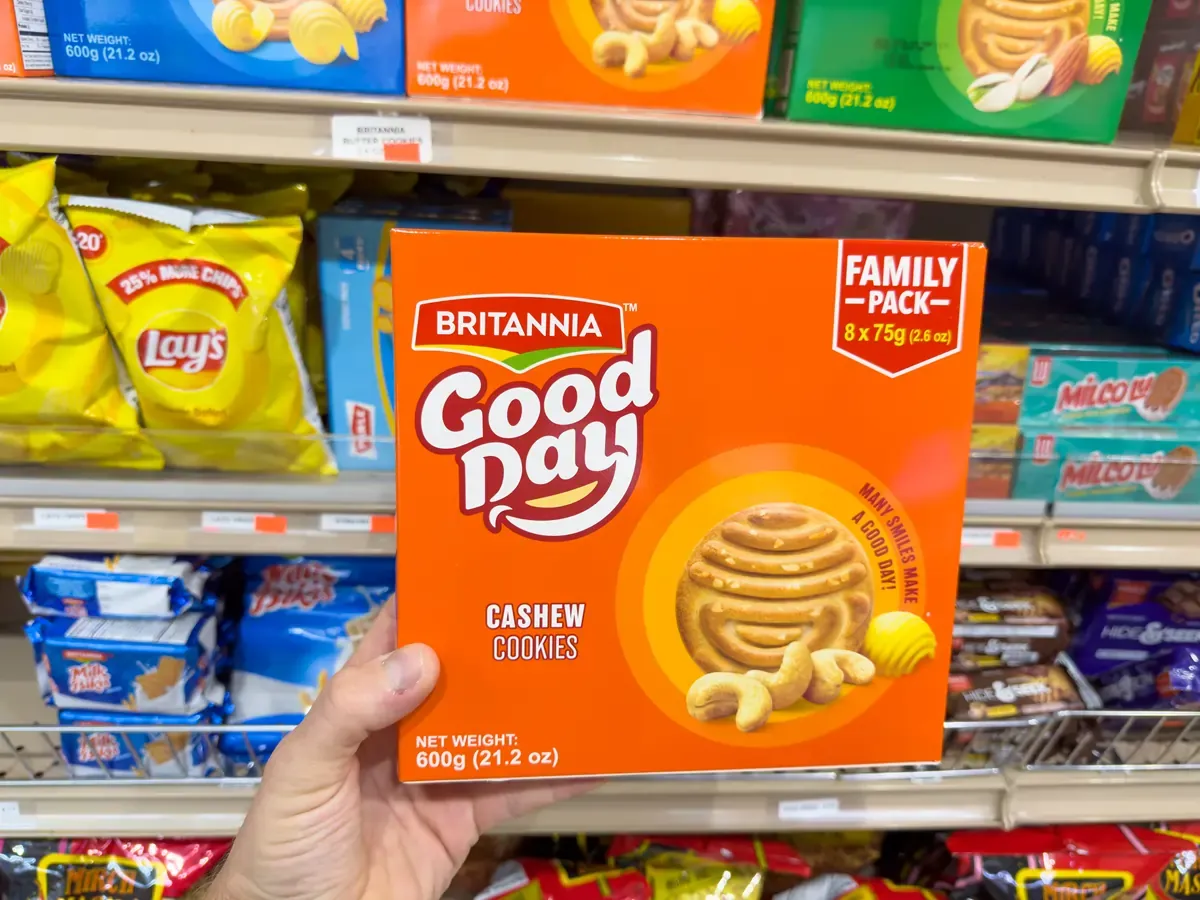Market News
Britannia shares jump 21% YTD, outperforming NIFTY FMCG index significantly; check what UBS says
.png)
6 min read | Updated on November 24, 2025, 12:26 IST
SUMMARY
Britannia shares: Analysts at UBS, in their latest note on Britannia, are positive on the company. They note that the company's Q3 volume growth is looking good, and the trajectory afterwards will be the key.
Stock list

Britannia is looking to drive volume-led growth as it looks to target regions, consumer-centric products and distribution. | Image: Shutterstock
Data show that the NIFTY FMCG index has slipped 2.76% year-to-date (YTD), or so far in 2025; however, one constituent of the FMCG pack has been an outlier, hands down. The stock, data show, has gained 21% during the period, thus outperforming the NIFTY FMCG index and the benchmark NIFTY50 index by a huge margin.
The company is Britannia Industries.
Britannia is a leading food company, established in 1892, that manufactures and markets bakery and dairy products. It is headquartered in Kolkata, with operations in over 80 countries, and is known for brands like Tiger, MarieGold, and Bourbon. The company's product portfolio includes biscuits, bread, cakes, and dairy products such as milk, cheese, and yoghurt.
The Nifty FMCG Index is designed to reflect the behaviour of Indian FMCG companies from the Fast Moving Consumer Goods (FMCG) sector. It includes companies that deal with those goods and products, which are non-durable, mass-consumption products and available off the shelf.
The NIFTY50 index so far in 2025 has risen 10%.
NIFTY FMCG constituents' performance
Leading FMCG names such as Emami, Dabur India, ITC, HUL, and Godrej Consumer have all underperformed Britannia YTD. However, one stock that has performed better than Britannia Industries is Tata Consumer Products (TCPL). TCPL stock has rallied over 28% during the period.
Why Britannia shares are rising
Shares are in demand as the company's outlook looks promising. Analysts note that Q3 volume growth is good and the adverse cycle of input prices is coming to an end.
_Take a look at the key points in detail. _
UBS' take
Analysts at UBS, in their latest note on Britannia, are positive on the company. They note that the company's Q3 volume growth is looking good, and the trajectory afterwards will be the key.
Britannia is entering an interesting phase, they note. UBS also believes that input prices have completed their adverse cycle and are entering an expansionary phase.
Company looks to drive volume-led growth
The biscuit manufacturer is looking to drive volume-led growth as it looks to target regions, consumer-centric products and distribution. The company also wants to make sure that it is price-competitive in each of the regions.
In their Q2 FY26 earnings statement, the then Vice Chairman and Managing Director Varun Berry said, "Looking ahead, we aim to drive the business through healthy volume-led growth as we continue to strengthen our presence across different geographies with regional-consumer-centric product and distribution strategies and price competitiveness while leveraging our brand strength to sustain market leadership amidst the proliferation of multiple local players in different states and regions."
Upbeat earnings
In the Q2 FY26 earnings statement, Britannia said that during the quarter, it recorded a "reasonable growth" in revenue, with the profits growing by 23.2%. It is "driven by relatively stable commodity prices and sustained efforts to optimise costs across the value chain."
Britannia's total expenses were flat at ₹4,005.84 crore in the second quarter of FY26.
Its total income, which includes other income, in the September quarter rose 3.8% to ₹4,892.74 crore.
In the first half (H1) of FY26, Britannia's total income grew 6.12% to ₹9,571.97 crore.
"The recent GST rate rationalisation announced by the government is a welcome step towards stimulating consumer demand and uplifting the overall economic sentiment in the country.
The adjacent bakery categories of rusk, wafers, and croissants continued to deliver double-digit growth for consecutive quarters despite the transitional headwinds, driven by strong momentum in the e-commerce channel – also aiding the in-home consumption of our indulgent and impulse product range, Berry added.
GST cut: A big positive
Terming the rationalisation of GST and a good monsoon this year as 'positive indicators', Britannia Executive's then Vice-Chairman, Managing Director and CEO Varun Berry had said in September that he expected the demand situation to become 'better and much stronger' in the coming quarters.
When asked whether the GST reduction would augur consumption, Berry said, "Definitely," as the food items are expected to move to 5% and 'positively impact' the consumption.
On being asked whether Britannia will pass on the benefits to consumers, Berry said, "Yes! Of course."
"It will take at least one and a half months for consumers to get this benefit," Berry had said.
According to Berry, biscuits are the cheapest form of food, which anyone can buy and are available everywhere from urban markets to lower-strata villages with a population of less than 3,000 people.
"So, certainly it's going to (positively) impact consumption, although penetration is 100%, but the amount which people are going to consume is going to be enhanced," the Vice Chairman had said.
Under the old GST regime, biscuits were under the 18% tax slab. However, all food products, including biscuits, are now placed under 5% in the new GST regime.
Rural sales to hit 50% in 3-4 years
In September 2025, Britannia said it expects half of its domestic sales to come from rural markets in the next 3 to 4 years, as it is expanding its distribution network to increase its presence in those regions with aspirational buying preferences, said Varun Berry.
The rural market is "very important" for Britannia, where the maker of Good Day, Marie Gold, and Tiger biscuits reported growth in double digits in the latest April-June quarter and is now amplifying reach through direct distribution to have a "continuous stream" of products being available in those far-flung markets, he added.
Britannia, which was an urban-centric company, now gets around 40% of its sales from rural markets, Berry said, adding that rural is now growing ahead of urban markets, and this trend is expected to continue.
Britannia operates in a category that has 100% penetration, and its products must be within arm's reach of consumers, the company said.
Related News
About The Author
Next Story




